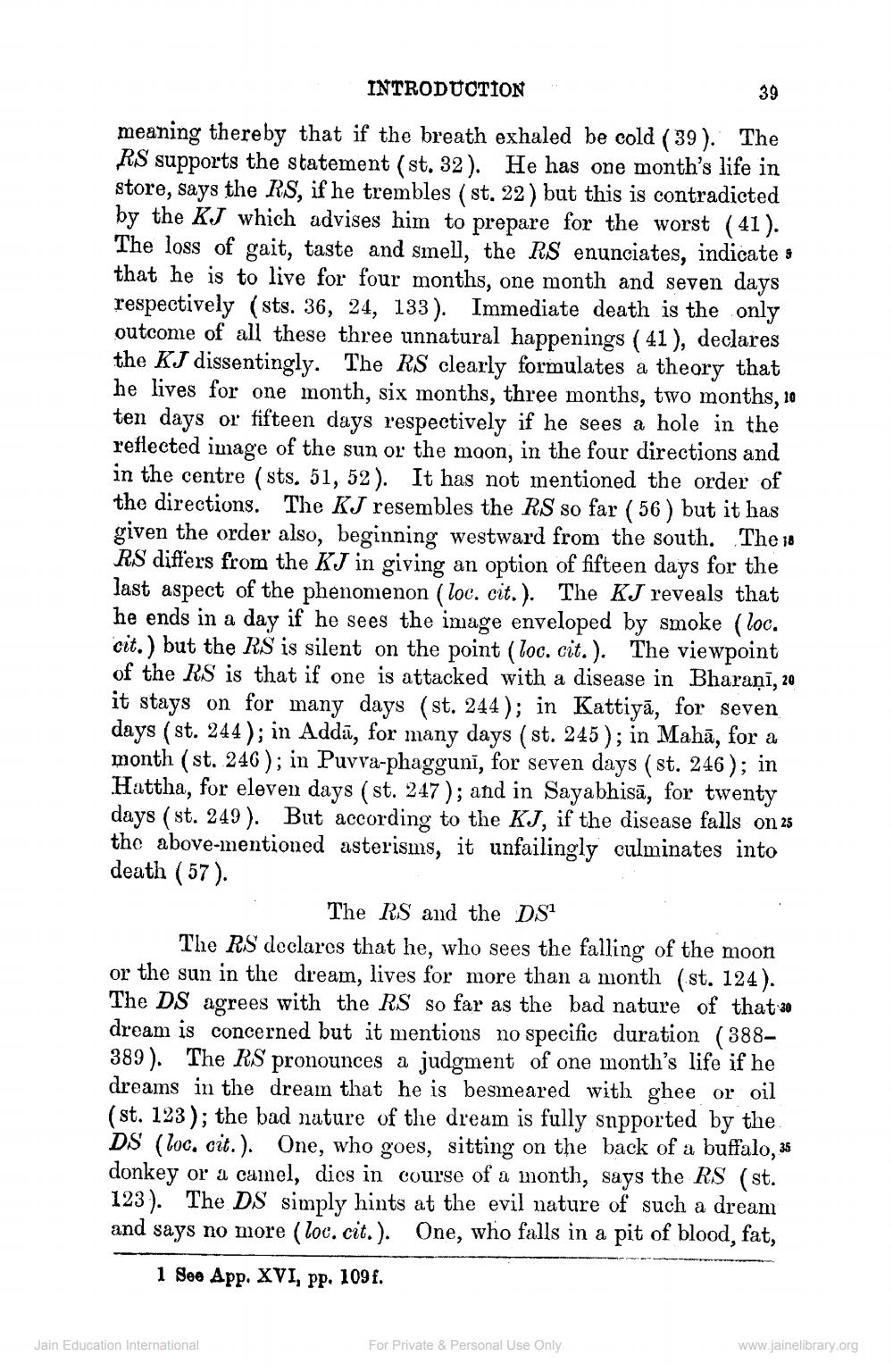________________
INTRODUCTION
39
meaning thereby that if the breath exhaled be cold (39). The RS supports the statement (st. 32). He has one month's life in store, says the RS, if he trembles (st, 22) but this is contradicted by the KJ which advises him to prepare for the worst (41). The loss of gait, taste and smell, the RS enunciates, indicate s that he is to live for four months, one month and seven days respectively (sts. 36, 24, 133). Immediate death is the only outcome of all these three unnatural happenings (41), declares the KJ dissentingly. The RS clearly formulates a theory that he lives for one month, six months, three months, two months, 10 ten days or fifteen days respectively if he sees a hole in the reflected image of the sun or the moon, in the four directions and in the centre (sts. 51, 52). It has not mentioned the order of the directions. The KJ resembles the RS so far (56) but it has given the order also, beginning westward from the south. The ja RS differs from the KJ in giving an option of fifteen days for the last aspect of the phenomenon (loc. cit.). The KJ reveals that he ends in a day if he sees the image enveloped by smoke (loc. cit.) but the RS is silent on the point (loc. cit.). The viewpoint of the RS is that if one is attacked with a disease in Bharaṇī, 20 it stays on for many days (st. 244); in Kattiyā, for seven days (st. 244); in Addā, for many days (st. 245); in Mahā, for a month (st. 246); in Puvva-phaggunī, for seven days (st. 246); in Hattha, for eleven days (st. 247); and in Sayabhisā, for twenty days (st. 249). But according to the KJ, if the disease falls on 25 the above-mentioned asterisms, it unfailingly culminates into death (57).
The RS and the DS The RS declares that he, who sees the falling of the moon or the sun in the dream, lives for more than a month (st. 124). The DS agrees with the RS so far as the bad nature of that so dream is concerned but it mentions no specific duration (388389). The RS pronounces a judgment of one month's life if he dreams in the dream that he is besmeared with ghee or oil (st. 123); the bad nature of the dream is fully snpported by the DS (loc. cit.). One, who goes, sitting on the back of a buffalo, as donkey or a camel, dies in course of a month, says the RS (st. 123). The DS simply hints at the evil nature of such a dream and says no more (loc. cit.). One, who falls in a pit of blood, fat,
1 See App. XVI, pp. 109f.
Jain Education International
www.jainelibrary.org
For Private & Personal Use Only




